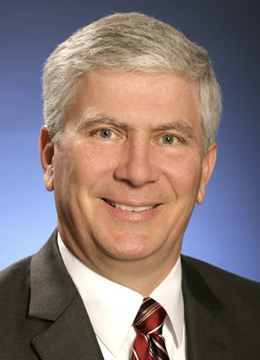 Airports and operators must rely on contracts to protect their rights and ensure the day-to-day operations of the facility proceed without interruption. Some contract issues are general commercial concerns, while others are specific to the unique needs of the airport. Regardless, it is crucial that all contracts be prepared or reviewed by an experienced aviation attorney.
Airports and operators must rely on contracts to protect their rights and ensure the day-to-day operations of the facility proceed without interruption. Some contract issues are general commercial concerns, while others are specific to the unique needs of the airport. Regardless, it is crucial that all contracts be prepared or reviewed by an experienced aviation attorney.
Types of Airport Contracts
Airports enter into various types of commercial contracts. Some of the most common include:
- Airline agreements. These contracts must consider factors such as length of term, control of space, vacancy risk, insurance, and aviation security. The most common lease term in the industry is five years, and there has been a general shift away from exclusive-use premises to preferential and common or joint-use premises.
- General aviation contracts. Contracts related to fixed-base operations, hangar leases, tie-down agreements, land leases, non-aviation development, and through-the-fence arrangements are vital to the success of any New Jersey airport.
- Ground transportation agreements. These contracts involve the coordination of baggage delivery services, chartered transportation, shuttles, taxicabs, courier services, courtesy vehicles, and public transportation.
- Contracted services. Depending on the facility’s specific needs, this can include contracts for janitorial, landscaping, security, maintenance, and technical support.
- Concession agreements. Terminal concessions include contracts for food and beverage, news and gift, and passenger services. Landside concessions include contracts for parking and rental cars. Both types of concessions can become important revenue sources if contracts are drafted to protect the owner and operator’s interests.
- Professional services. Contracts with architectural and engineering firms, financial services firms, and real estate professionals may be needed to complete special projects or expansion plans.
- Communication and utility contracts. Telephones and wireless internet services require contracts. Utilities are not generally covered by a contract but may need easements for pipes, conduits, lines, and poles
- Agreements with public agencies or non-profit organizations. Since airports often attract local residents as well as visitors, the facilities are generally high-priority locations for public art. Contracts for these projects can address general control over the program as well as coordination with the airport’s construction, maintenance, and security staff.
Airline agreements involving federal regulation or funding are generally exempt from state or local procurement rules, but they can be subject to federal contracting rules and regulations or FAA grant assurances.
Why You Need an Aviation Attorney to Draft and Review Contracts
By definition, contracts are legally binding agreements that clarify each party’s rights and duties while managing the expectations for a particular transaction. To be effective, they must be clearly written and free of ambiguity. In the worst-case scenario, poorly written contracts can break up long-term business relationships, destroy your professional reputation, or even bankrupt your company.
An experienced aviation attorney who understands the unique business challenges an airport owner or operator faces is best equipped to create contracts that provide the maximum possible legal protection. Your attorney can:
- Ensure the contract is legally enforceable
- Identify any potential liability concerns
- Address a vendor’s desire to limit the nature or amount of damages that can be recovered to ensure limitation of liability is in your best interest as the airport owner and operator
- Include contract incentives, penalties, and service level agreements to allow you to manage performance without immediately jumping into a breach of contract dispute
- Ensure all applicable local, state, and federal laws have been considered
- Make suggestions or offer new perspectives on ways to best protect your legal rights
- Answer any questions you may have about the terms of the contract
- Promptly respond to breach of contract allegations
- Provide assistance with alternative dispute measures such as arbitration
Aviation attorney Frank Steinberg has served as president of the Lawyer Pilots Bar Association, chairman of the New Jersey Aviation Association, and president of the Mid-Atlantic Aviation Coalition. He has also been quoted in major media publications such as The New York Times as an expert on interpreting aviation law. When you need well-written contracts that protect your interests, Steinberg Law, LLC is here to help. Contact us today to request a free case review.

